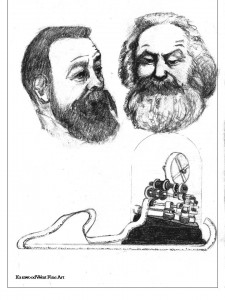And Today’s Special Guest Victim Is…
Posted in General, On This Day on March 23rd, 2007 by Eugene Finerman – Be the first to commentIf embezzlers and MBAs had a Hall of Fame, Nicolas Fouquet would be shamelessly prominent. As the Minister of Finance during the early reign of Louis XIV, Fouquet maintained a bookkeeping system modeled after the Gordian Knot. It could be said that he would collect all the revenues but was willing to share some with the government, or at least the officials he liked.
Fouquet had the finest home in France. It seems unlikely that he afforded it just by brownbagging his lunches. The thought certainly occurred to Louis XIV, who evidently resented being the social inferior of his minister. The King ordered Fouquet arrested for embezzlement. There was a public trial, and the verdict could hardly be in doubt, but the judges proved unusally sympathetic to the accused. (Had they been past recipients of Fouquet’s generosity?) They sentenced him to banishment; you might well suspect that Fouquet planned a comfortable exile. The King, however, overruled that lenient sentence and condemned Fouquet to life imprisonment. The disgraced minister spent the last fifteen years of his life in a less than luxurious cell. He died this day in 1680.
His second career began in the 1930s. Someone in Hollywood had been reading Alexandre Dumas. The 19th century French novelist apparently had screenplays in mind. “The Three Musketeers” and “The Count of Monte Cristo” had been box office hits, and the studios wanted more. While Dumas himself was no longer available, he had been prolific and his works included a sequel to The Three Musketeers. Based on a legend about a prisoner in the Bastille, the story was known as “The Man in the Iron Mask.”
Dumas had imagined that the title character was Philippe the twin brother of Louis XIV, hidden from birth but now the center of a plot to substitute him on the throne. In the novel, the younger brother was the unknowing pawn of ambitious men. Their attempted coup fails, however, due to the heroism of D’Artagnan and the shrewdness of a government minister named Fouquet. The real king is saved (even if France isn’t) and Philippe is condemned to the Bastille where his royal features are covered by an iron mask.
It seemed like another swashbuckler perfect for Hollywood…except for one problem: the villains. In Dumas’ novel the conspirators were the Jesuits, led by the renegade musketeer Aramis. Hollywood was not prepared to vilify the Catholic Church (although the Church never has been shy about vilifying Hollywood). So, a new villain had to be created.
Poor Fouquet already had a criminal record. Since he was an embezzler, why not make him a traitor, too? So, from helping to foil the plot, Fouquet became the mastermind of it.
But then Hollywood came up with yet another improvement on the plot. Instead of making poor Philippe a malleable cipher, portray him as a noble alternative to his wicked older brother Louis–and have the plot succeed. Good Philippe would secretly replaced Louis, who then would become The Man in the Iron Mask. Of course, Fouquet would still have to be a villain, but he would prove his intrinsic evil by being loyal to the legitimate King.
The logic of the plot was very similar to Fouquet’s Gordian bookkeeping. Dumas would have been dismayed; he actually seemed to like the wily minister. In fact, Dumas even gives Fouquet one of the novel’s few jokes.
Fouquet has heard rumors of the twin prince. He asks a trusted henchman, “Do you recall some mystery surrounding the birth of Louis XIV?”
The aide replies, “Do you mean that Louis XIII was not the father?”
Fouquet corrects him, “I said a mystery.”
